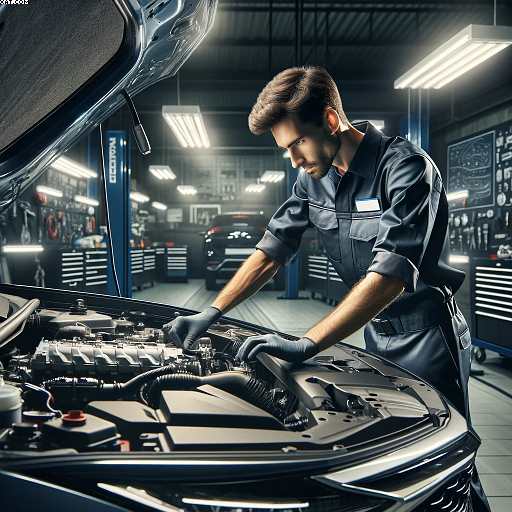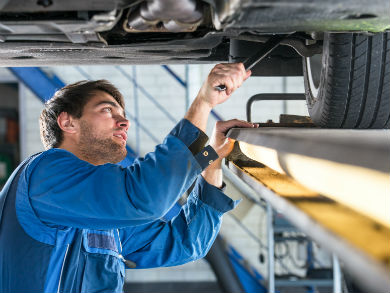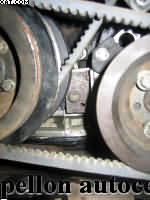Table of Contents
Timing belts are Important

Timing belts are Important
When it comes to car servicing, timing belts are important. A timing belt is the most important serviceable part of a car’s engine. pic.twitter.com/0mBknuJpGN
There is no doubt that your car’s timing belts are important. Consequently, this is another reason why you should take in your car for regular servicing . Importantly, at regular intervals.
You may ask, what does servicing have to do with your timing belt?
The truth is that all good garages (including my own garage) are here in Halifax, Yorkshire, UK. On the positive side, I will check out the timing belt changing times. So, when carrying out a service…
Timing belt change intervals, are recorded on the computer data that we have to keep nowadays. These systems act as the timing belt interval replacement guide and keep all the interval times and other important information, such as how many hours labour it takes to fit one.
This timing belt replacement time
The Critical Importance of Regular Timing Belt Checks
Certain automotive maintenance jobs may appear simple, but they are crucial to your vehicle’s longevity and safety.
One such chore is the frequent inspection of the timing belt—a component that may not receive as much attention as oil changes or tyre pressures but is critical to the correct operation of your car’s engine.
What is a timing belt? Timing belts are important.
The timing belt is a component of an internal combustion engine that synchronises the rotation of the crankshaft and camshaft(s).
allowing the engine’s valves to open and close at the appropriate moments throughout each cylinder’s intake and exhaust strokes. It is a critical component that keeps the engine running smoothly.
The importance of regular servicing
Regular maintenance, including timing belt checks, is necessary for various reasons:
Preventing Engine Damage: The timing belt wears and tears with use. If not replaced at the manufacturer’s recommended intervals (often between 60,000 and 100,000 miles),
it may fail. A snapped timing belt can cause serious engine damage, including bent valves, cylinder head or camshaft damage, and pistons striking valves. Such fixes are much more expensive than belt replacements.
Maintaining Vehicle Performance: Timing belts are Important
A well-maintained timing belt ensures that the engine performs optimally. It helps to maintain the engine timing exactly, preventing it from running too rich or too lean, which can have an impact on overall performance and fuel efficiency.
Ensuring Safety: A broken timing belt can cause sudden engine damage, resulting in unexpected vehicle breakdowns in potentially dangerous locations or under hazardous driving conditions. Regular inspections and replacements, if needed, lower the likelihood of such incidents.

Consequences of not replacing timing belts, Timing belts are important.
Neglecting the timing belt can have a number of significant consequences.
Catastrophic Engine Failure: If the timing belt breaks while the engine is operating, it can lead to catastrophic engine failure. In engines with very limited clearance between pistons and valves (known as interference engines), a timing belt failure can cause the valves and pistons to collide, resulting in catastrophic engine damage.
Increased Repair Costs: Ignoring timing belt maintenance can result in higher costs down the road. Repairing engine damage caused by a faulty timing belt is often expensive and can exceed the value of the car, particularly in older models.
Reduced Resale Value: Regular maintenance records, such as timing belt repairs, can help increase a vehicle’s resale value. Potential purchasers are frequently prepared to pay extra for a well-maintained vehicle, which includes regular timing belt changes.
Best Practices for Timing Belt Maintenance
Check the Manufacturer’s Guidelines: Always follow the manufacturer’s recommended service intervals. These rules are intended to prevent problems before they arise.
Visual inspections: During routine maintenance, inspect the timing belt for indicators of wear such as cracks, shredding, or excessive slack.
Consider ageing and usage: even if you drive a low-mileage vehicle, ageing can have an impact on the timing belt. Most manufacturers recommend replacing the timing belt every 5 to 7 years, regardless of the number of miles driven.
Replace Related Components: When changing a timing belt, it is generally a good idea to also replace related components such as the tensioner and water pump. This preventative technique can save money and avoid future issues.
The timing belt may not be the most obvious component of your car, but it is one of the most important for your engine’s health and safety.
Regular timing belt checkups and maintenance are important.
can help to prevent severe engine damage, save money on potentially expensive repairs, and keep your car reliable and performing at its best. As a responsible vehicle owner, you should never disregard this important part of automotive maintenance.
will be used to give our customer a price and perhaps time for them to save up for the job. Although it is not a very expensive job, it will usually mean that you will also need a price for the timing belt and water pump replacement.
The water pump is usually a part of the same system
So, is also better to be changed at the same time. Of course, the timing belt also drives the water pump and is better changed. Avoiding a water leak in the future. Having to repeat the same job in the too distant future.
Also, if you have a leaking water pump, it is best policy to change your timing belt at the same time.
Some models of cars have metal timing belts, which do not require the same attention, but the workshop manuals will tell your garage this.
- Winter Tyres tested
- Self-Driving cars-Doomsday Scenario
- BMW Hand brake problem
- Discarded tyres
- Michelin versus Pirelli
DO not ignore the advise of Timing belts are important because the end consequence will mean a damaged engine, at least.
Sourced through Scoop.it from: twitter.com


